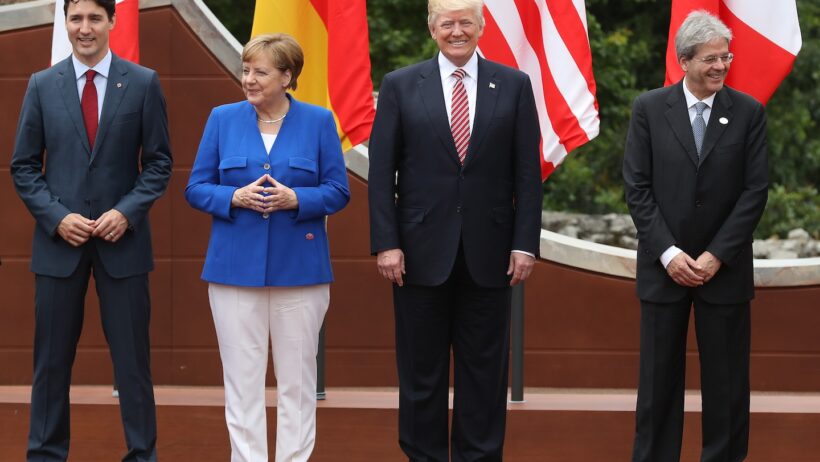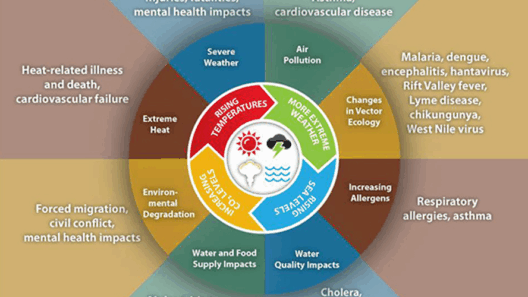Understanding the views of political leaders on climate change is crucial because their perspectives do substantially shape environmental policies and public opinion. One such leader whose stance has fluctuated significantly is Donald J. Trump, the 45th President of the United States. His evolving narrative regarding climate change presents an intriguing case study. Are his views rooted in science, economic strategy, or political convenience? This article will delineate his position on climate change by exploring three facets: his historical skepticism, recent indications of an evolving outlook, and the implications of this transition.
Historical Skepticism: Firm Doubts and Controversial Statements
From the outset of his presidential campaign, Trump’s skepticism surrounding climate change was apparent. He famously dismissed climate change as a “hoax” perpetrated by the Chinese to undermine American manufacturing. Such a bold assertion resonated with many of his supporters, who often express skepticism towards scientific consensus. This dismissal was not merely casual rhetoric; it underpinned several of Trump’s policy decisions throughout his presidency.
Under his administration, numerous regulations aimed at curbing greenhouse gas emissions were repealed or relaxed. The withdrawal from the Paris Agreement further underscored his administration’s ambivalence towards global climate initiatives. Comments made during public rallies often downplayed the consequences of climate change, framing them as exaggerated threats posed by environmentalists.
This historical skepticism raises questions about the foundational beliefs that can lead political figures to position themselves against mainstream scientific consensus. Is it a genuine disbelief in the science, or a strategic maneuver to galvanize a base that thrives on anti-establishment sentiment? Understanding this context can elucidate the reasons behind his previously pronounced denial.
Recent Indications: Signs of an Evolving Perspective
The notion that leaders, particularly those captivated by public favor, can experience shifts in their perspectives is not novel. Circumstances can compel political figures to acknowledge realities they previously denied. Faced with dire scientific predictions and visual evidence of climate change—such as more frequent wildfires, rising sea levels, and severe weather patterns—Trump’s aides have hinted at a burgeoning acknowledgment that his views may need to adapt in light of these realities. This begs the question: what catalyzes such change? Is it the mounting pressure from constituents advocating for climate action or a seismic shift in the political landscape?
Additionally, interviews with Trump’s close associates reveal a more pragmatic approach to the issue. His perspective appears to be fracturing in the face of an undeniable climate crisis, which could ultimately influence Republican policies moving forward. The juxtaposition of Trump’s public skepticism with these signals of potential evolution presents a paradox worthy of contemplation.
The Implications of Transition: What It Means for Climate Policy
The ramifications of Trump’s evolving views on climate change are profound. If he does shift towards a more affirmative stance on climate change, the implications for environmental policy and public discourse would be substantial. An acknowledgment from such a high-profile political figure could catalyze a larger acceptance of climate science within the Republican Party. This could open avenues for legislative discussions on sustainability and adaptive policies.
Conversely, if this evolution is merely superficial, the dissonance between rhetoric and reality can perpetuate public confusion, exacerbating the climate crisis. Ambiguity in leadership can stymie urgent actions needed to address climate change. The continuation of half-hearted acknowledgments without substantive policy reforms can lead to an increase in public disillusionment regarding political engagement in climate matters.
Moreover, engagement with climate science encompasses ethical considerations that encompass intergenerational responsibility. The choices made today resonate far beyond the current political climate. The burden of inaction transcends political ideals and extends to economic, social, and environmental realities for future generations. Thus, the degree to which Trump embraces or battles against climate change will ultimately have lasting implications for how we address this existential challenge.
As the dialogue surrounding climate change continues to evolve, the narrative surrounding Trump’s views provides a case study of how complex and multi-faceted the issue is. Acknowledgment of climate change from all political spheres is crucial for fostering bipartisanship in addressing environmental dilemmas. The capacity for change remains a potent source of hope. By examining the undercurrents that shape political perceptions of climate change, we can better understand both the challenges and opportunities that lie ahead in this critical global issue.





